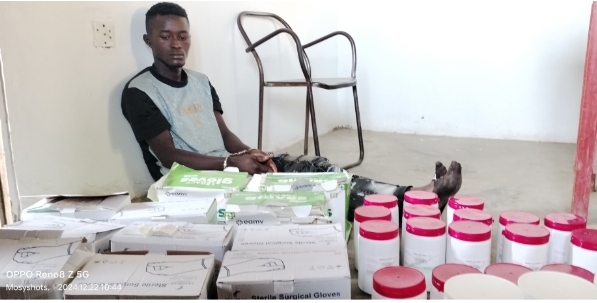Uganda has made notable progress in delivering essential medicines to health facilities through the National Medical Stores (NMS) Last-Mile Delivery system.

Medicines now reach public hospitals and health centres regularly—monthly for national facilities and every two months for others.
However, concerns remain around theft and misuse of government medicines, often undermining these achievements. Tackling this problem requires leadership at all levels—and Resident District Commissioners (RDCs) are uniquely positioned to contribute.
As the President’s representatives at the district level, RDCs are tasked with overseeing the implementation of government programs. According to Kassandha RDC, Mike Segawa, RDCs “are also recipients of real-time notifications from NMS whenever medicine deliveries are made in their districts.”
Segawa said, “This system presents an opportunity: RDCs can use these alerts to engage with health facilities, verify deliveries, and follow up with in-charges to ensure medicines are properly stored and distributed.”
He added: “Public confidence in government health facilities depends not only on the availability of medicines but on the transparency surrounding them.”
Joan Mulinde, a human rights activist, says RDCs can help bridge the trust gap by keeping communities informed—using barazas, radio programs, and local meetings to explain what medicines have been delivered and what patients are entitled to.
Beyond public engagement, RDCs can work with sub-county chiefs, LC1s, and GISOs to foster informal monitoring systems. Citizens are more likely to report concerns when they know their leaders will listen and respond appropriately.
Protecting community whistleblowers and encouraging feedback is essential for accountability. To be clear, the RDC’s role is not to take over the work of health professionals—but to ensure that government systems are working as intended.
This includes encouraging better coordination between DHOs, health committees, and civil society actors.
Segawa notes that theft of government medicines, even on a small scale, can erode public trust and harm service delivery.
“But with committed local leadership, this trend can be reversed. Every medicine that reaches a patient is a step toward better health outcomes. Every diverted drug delays that progress,” he observed.“
We encourage RDCs across Uganda to treat drug accountability as part of their broader duty to protect government services. Your presence and follow-up make a difference.
By leading through action and engagement, RDCs can reinforce the message that public health is a shared responsibility—and that every medicine counts.






